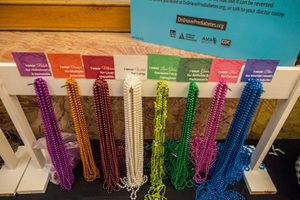3rd Annual Chronic Disease Awareness Day At The Capitol
3rd Annual Chronic Disease Awareness Day: Big Success!
About 100 members and supporters of the Chronic Care Collaborative (CCC) attended the third annual Chronic Disease Awareness Day on February 24 by showing up at the State Capitol Building in Denver and letting their colors fly. By flying colors, I mean wearing Mardi Gras beads in purple, orange, pink, blue green, yellow, etc. — each color representing a different chronic illness. Purple for Alzheimer’s disease, pink for Cancer, orange for Multiple Sclerosis, green for Arthritis and Parkinson’s, and so and so on.
 “The beads are meant to be a conversation starter, and to connect us,” explained Carrie Nolan of the National MS Society, in her opening remarks at the annual event.
“The beads are meant to be a conversation starter, and to connect us,” explained Carrie Nolan of the National MS Society, in her opening remarks at the annual event.
Nolan encouraged everyone to use the Tweet Cheat Sheet in their blue folder to get the word out about the CCC’s priorities, and the event. Also in the blue folder, she explained, was a card to be filled out and delivered to your state legislator in the Grand Assembly Hall just next door, in order to initiate a conversation about health care policy issues that affect the one in four Coloradans living with chronic disease. Suggested talking points were included to make help make the discussion as impactful as possible.
TaRhonda Thomas of Channel 9News moderated an impressive panel, called Colorado Breakthroughs, of researchers and health care leaders that included Mike Biselli, a digital health evangelist and entrepreneur and founder of Catalyst HTI, Huntington Potter, PhD, Professor of Neurology and Director of Alzheimer’s Disease Programs at the University of Colorado and Kevin Deane, MD, PhD, Associate Professor of Medicine at the University of Colorado Anschutz Medical Campus in the Division of Rheumatology.
Biselli shared his bold plan for improving healthcare costs, efficiencies and delivery through digital health technology, which centered on the launch of Catalyst HTI, a 350,000 square foot campus to be developed in the trendy RiNO neighborhood. This campus community will bring together governmental, academic, nonprofit and commercial organizations “to make Colorado the number one digital health cluster in the country by 2020.”
Deane shared his work as the Principle Investigator on a NIH-sponsored clinical trial, “Strategy for Preventions of RA” or “StopRA”. His focus: to treat people before they are sick in order to prevent Rheumatoid Arthritis, and other autoimmune diseases – and, eventually, other disease as well.
If we study disorders together, says Potter, we’ll get better results. He discussed his work studying people with Down syndrome, who, for some reason, all have the hallmark plaques and tangles of Alzheimer’s disease (AD), but don’t all go on to develop Alzheimer’s symptoms (about 25% do not develop it). Potter’s other work involves a clinical trial to use an FDA-approved drug called Leukine, currently used to stimulate white blood cell production in bone marrow transplant patients, on AD patients. This drug trial emerged after learning that RA patients are largely immune to AD, and determining that RA patients produce an overabundance of GM-CSF, the natural version of the Leukine drug. “I’m hopeful that this drug will be the basis for developing a cure for Alzheimer’s,” Potter stated.
A Q&A period followed the presentations. Many attendees were concerned about the cost of these potentially life-changing drugs and if insurance companies would cover some of the more experimental ones. The hope was that they would, but panelists could not say for sure. Others wanted to know where they could sign up, or sign their family members up, to participate in clinical trials (see links below).
Keynote speaker Matt J. Ellefson, a cancer survivor and founder and CEO of SURVIVEiT, a website database designed to help patients find the best care for their condition, shared his harrowing journey from a healthy, active 40-something non-smoking father to late stage lung cancer patient and then to cancer survivor, after an aggressive five month clinical trial treatment in Houston that he found through extensive research. Not wanting other patients to go through the frustration and exhaustive, and often dead-end, research he went through, Ellefson developed SURVIVEiT.
“Why should it be easer to find the best restaurant in town but not the best doctor for your disease?” he asked.
All speakers shared the sentiment that in order for changes in healthcare to happen, individuals like those in the audience needed to make their voices heard, or to “bang the drum loudly every day,” as Biselli put it.
“Healthcare is a non-partisan issue. Tell your legislator. They will listen to you,” encouraged Potter.
Related links: For information about Catalyst HTI: http://catalysthealthtech.com
For Information about StopRA: StopRA@UCDenver.edu
For information about the Alzheimer’s Leukine Trial Information: https://clinicaltrials.gov/ct2/show/NCT01409915
For information about SURVIVEiT: http://surviveit.org


